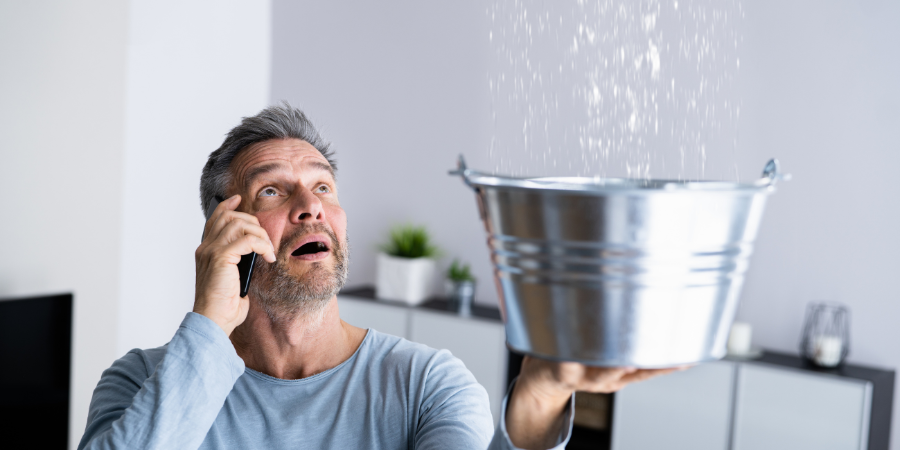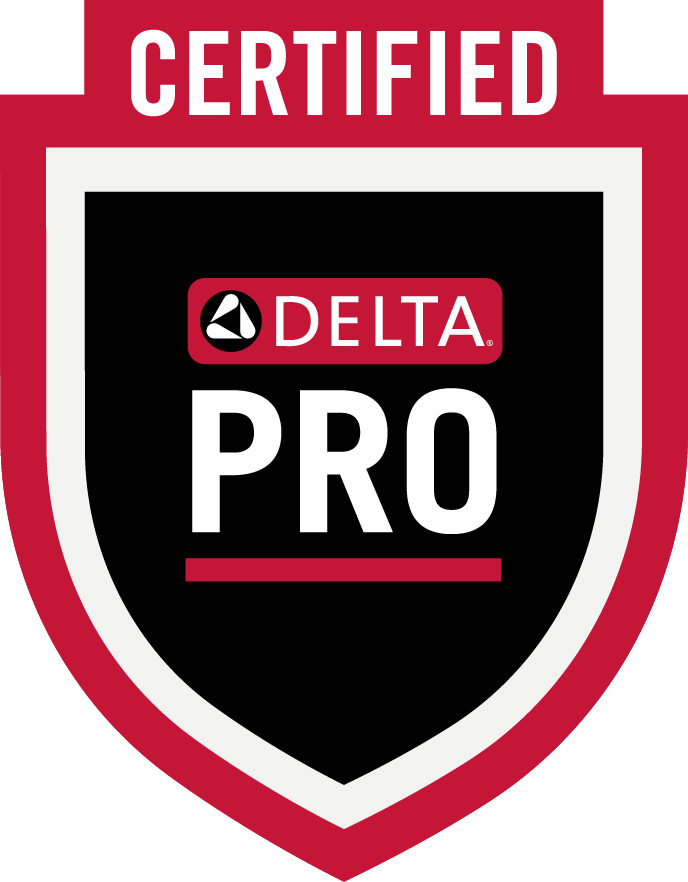Plumbing pipes can corrode for many reasons, but the result is always a deterioration of the pipe material, which can lead to poor water quality, early failure of pipes and plumbing fixtures, clogged pipes, and leaking pipes.
In this article, we will examine what pipe corrosion means, the effects of plumbing corrosion, and the causes of pipe corrosion. We will also learn the signs that indicate your pipes are suffering from corrosion and ways you can prevent this condition from taking over your plumbing pipes.
What Is Pipe Corrosion
Pipe corrosion is defined as the interior or exterior destruction of plumbing pipes, which is caused by factors such as the acidity, hardness, and velocity of the water they carry. Here, we will look at what pipe corrosion is.
Internal
Pipe corrosion is typically associated with metal piping that breaks down when exposed to the substances it transports. An electrochemical reaction occurs when the metal loses electrons, which are transferred to the substances and cause the pipe interior to degrade. This deterioration reduces water quality, leads to premature failure of plumbing pipes and fixtures, and causes the formation of clogs that eventually lead to leaking plumbing.
External
In addition, plumbing pipes can corrode from the outside when they come in contact with certain soil types. The most corrosive soil types have high contents of moisture, electrical conductivity, acidity, and dissolved salts. Exterior corrosion, similar to interior corrosion, threatens the integrity of the pipe and will lead to pipe failure.
Plastic Pipe
Corrosion is more often found in metal pipes, but plastic pipes are still susceptible to corrosion. Water treatment facilities add chlorine to the water supply to disinfect it and keep it safe for drinking. Still, this addition weakens the plastic pipes, causing them to become brittle, crack, and fail more quickly than initially thought when this pipe material was first introduced.
Signs And Effects Of Pipe Corrosion
Corrosion is a serious problem that affects more than just the quality of your water. If left unchecked, pipe corrosion can lead to various issues, from damaged infrastructures to health-related issues, all of which lead to costly repairs and a reduced quality of life. Here, we will look at the main effects corrosion has on a home and its inhabitants.
Deteriorating Pipes
As corrosion takes hold, it begins to weaken pipes, causing them to crack, leak, and burst. This can lead to expensive repair or replacement of parts of the plumbing system.
Low Water Pressure
As pipe interiors begin to deteriorate, they become clogged with sediment and rust. This layer thickens over time, reducing the amount of space available for water to pass. This slows the speed of the water being transported and results in low pressure at the taps, showerheads, and appliances.
Poor Water Quality
Water running through corroded pipes will significantly reduce water quality. Depending on the type of pipe, some conditions may result in foul-smelling or tasting water, discolored water, cloudy water, or water filled with sediment or rust particles. These conditions are aesthetically unappealing, but they can also be dangerous.
Leaching
This condition is especially concerning. As water passes through corroded pipes or pipes made of certain materials, the water picks up chemicals from the pipes and infects the water. Metallic pipes and polyvinyl chloride pipes produce the highest levels of leached materials.
Clogs
As the pipe interior narrows, waste materials will likely catch and accumulate, leading to clogged pipes. This is problematic in and of itself, but clogged pipes place additional strain on plumbing systems, leading to a more serious plumbing issue: leaks.
Leaks
Leaking pipes can result from clogged pipes or as pipe walls fail due to corrosion. They can appear as pinhole leaks, which are more common in copper piping, or full-blown bursting pipes.
A leaking pipe, especially one that is hidden from view and, therefore, goes undetected, can cause serious damage to a home’s infrastructure. Leaks also promote the growth of mold and mildew, which can negatively affect residents’ health.
Causes Of Pipe Corrosion
Several contributors to pipe corrosion exist. Understanding the causes can help reduce the intensity of corrosion and avoid serious and costly plumbing problems in the future.
Acidic Water
Water with a low pH is considered acidic and can literally dissolve the interior of pipes. During this process, components from the pipe material can leach into the water supply, reducing the water quality and causing illnesses.
Hard Water
Hard water is water rich in minerals such as calcium and magnesium. These minerals accumulate on the interiors of pipes and water-using appliances, leading to low water pressure and corrosion. Hard water is found in more than 85% of homes in the US, so it is a common problem.
Oxygenated Water
Water with a high level of oxygen will cause pipe interiors to rust and corrosion. Oxygen is released from plants undergoing photosynthesis or from direct absorption from the air and enters the water supply. The higher the oxygen level, the faster corrosion will take hold.
Sediment
Dirt, sand, and sediment passing through plumbing pipes can not only contaminate the water but can also lead to hydraulic wear or corrosion.
Chemical Drain Cleaners
A common practice amongst homeowners is to unclog pipes using chemical drain cleaners. While these do an excellent job of removing blockages, the chemicals are harsh and will damage pipe interiors, causing them to weaken.
Electricity
Copper is an excellent conductor of electricity and will attract any stray current in the vicinity. Thus, a passing electrical current will be drawn to and interact with the copper pipe, which will lead to a corroded pipe.
Velocity
High-velocity water is often associated with a closed-loop system. As the water runs, it increases in velocity as it makes turns or rubs up against an object that interferes with its natural flow. An example of this sort of object would be excess solder at a pipe joint. High-velocity water will increase the likelihood of pipe corrosion.
Preventing Corrosion
Although eliminating corrosion may not be possible, some steps can be taken to reduce its occurrence. Here, we will discuss some options homeowners have available to them.
Water Testing
Testing the water will allow homeowners to determine the hardness, mineral content, conductivity, and alkalinity of their water. Armed with this information, further steps can be taken to reduce the effects of these conditions.
Water Filtration
Very acidic water can cause problems, as we have discussed. In order to treat acidic water and reduce its effects, a filtration system can be installed.
Water Softener
To counter the damage to pipes and components of fixtures and water-using appliances, a water softener can be installed. Since hard water results from excess calcium and magnesium, a softener is used to remove or isolate these minerals, keeping them out of the water.
Repiping
Repiping is the process of abandoning outdated or aging pipe material while installing new, state-of-the-art piping. Checking pipe materials and removing those that are harmful or at the end of their expected lives is a solution to heavily corroded pipes.
Monitor Water Pressure
Although reduced water pressure can result from other plumbing issues, if low pressure is gradually taking over your plumbing system, corroding pipes should be considered as a cause.
End Drain Cleaner Use
As tempting as it might be, it is imperative that homeowners stop using chemical drain cleaners. Instead, resort to plunging and snaking, and if those methods fail, call a professional plumber.
Professional Plumbing Inspection
Enrolling in ongoing plumbing inspections is the best way to ensure a sound plumbing system free of corroding pipes. A plumbing inspection will allow a trained technician to look for signs of corrosion and eliminate the common causes that lead to this destructive condition, thus extending the life of the plumbing system and protecting the health of the inhabitants.
Looking To Reduce Pipe Corrosion And Improve The Condition Of Your Plumbing System?
Pipe corrosion can lead to serious problems and the premature replacement of pipes, fixtures, water-using appliances, and even an entire plumbing system. It can also help create situations that threaten the health of the inhabitants.
We possess the skills required to properly address corrosion-related plumbing issues. Our years of experience qualify us to deliver permanent solutions to complex problems, and engaging our services will save you time and money.
Join our long list of valued and satisfied customers who rely on our expertise to keep their homes safe and comfortable and to put their minds at ease. Give us a call today!






